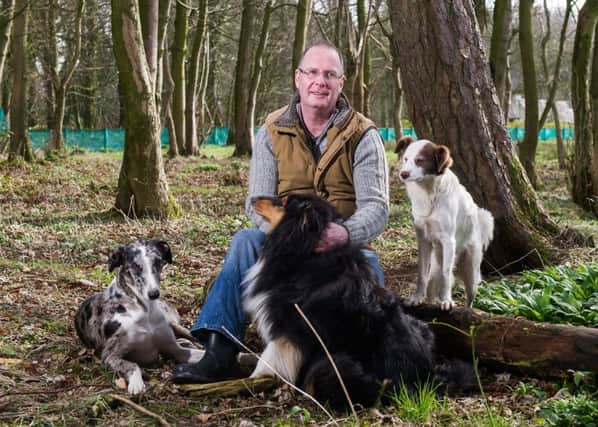Scottish dog daycare regulations '˜are a postcode lottery'


While some local authorities have launched voluntary – and in one case mandatory – registration schemes for the thousands of dog walkers across the country, other council areas require no official checks even for businesses which have set up as daycare premises for dogs.
But although many local authorities require people using land for dog boarding – even if only in the daytime – to be licensed to ensure that the animals are properly accommodated and cared for, others which do not operate an overnight service only have to go through planning “change of use” regulations for their premises.
Advertisement
Hide AdAdvertisement
Hide AdOf Scotland’s 32 councils, only four – City of Edinburgh, West Lothian, Dundee and East Lothian – said they have a scheme in place for dog walkers to be registered, whether on a voluntary or mandatory basis. Twenty-two did not, while four were unable to provide information.
Meanwhile, 17 council areas require a licence for dog daycare businesses, while one, Dumfries and Galloway, said the issue was currently being debated. Four said they did not, while the remainder were unclear as to whether daycare businesses fell under overnight boarding regulation or unable to provide the information.
Experts warned that the current situation leaves animal owners confused and unable to ensure that anyone they employ to care for their pet during the day is competent to do so.
Mike Flynn, chief superintendent of the Scottish SPCA, said, “We welcome any calls for doggy day care to be regulated through registering with the local authority as a minimum.”
Debbie Parker, who offers canine first aid courses to dog professionals at Forth Training, said: “Standards really need to be mirrored across all local authorities so a consistency and regulated approach to canine professions is adopted.”
The Animal Boarding Establishments Act of 1963 stipulates that to run a boarding kennel or cattery, an individual needs a licence from the local authority. The number of dogs and cats that may be accommodated will also be specified on it.
However, when the Act was drawn up, daycare centres for dogs did not exist, leaving many local authorities at a loss as to whether they should regulate such organisations.
A spokeswoman for Dumfries and Galloway Council said: “Currently, there is ongoing debate on whether dog daycare is regarded as boarding or not.”
Advertisement
Hide AdAdvertisement
Hide AdCity of Edinburgh Council said it required all dog walkers to sign up to a free permit, which means they have to adhere to the council’s code of conduct which includes having to make sure they clean up after any dogs they walk – and also ensure they have “a good knowledge of dog behaviour and skills in training and handling dogs”.
Dundee Council’s voluntary scheme requires dog walkers to walk no more than six animals at any one time and keep “accurate up to date records for each dog in their care”, as well as carrying an animal first aid kit.
Highland Council said it was considering adopting a voluntary registration scheme for dog walkers, while Falkirk Council said no licence was required, but that “experience in handling dogs is expected”.